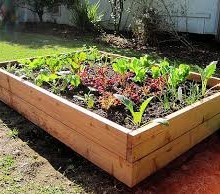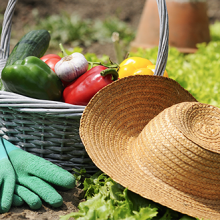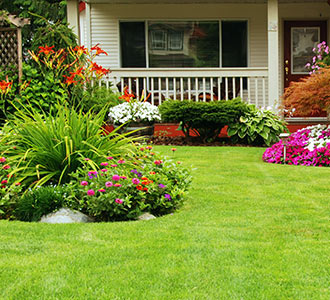How to Plan Your Winter Vegetable Garden
When it comes to vegetable gardens, planning is everything, especially if we are talking about winter vegetable gardens. After all, this is not the easiest season. It’s important for you to know which vegetables survive during the winter, how much time vegetables need to grow and whether they will make it before snowfall. It’s vital for you to know when is the best time to prepare your vegetable garden, what to plant, how to proceed and where exactly to plant. Every little thing is important if you want to make the best out of your efforts and enjoy your winter vegetable garden.
Where to Grow Your Veggies
Vegetables need sun. If this is your very first vegetable garden, pick a nice corner in your yard that is sunny all year around. This is important especially during the winter when temperatures fall, and your vegetables will need as much sun as possible. The good news is that vegetable gardens do not need to be huge. If this is your first effort, start by covering a small sunny part of your garden, and if all goes well, you can enlarge it next year.
The Right Time Is Always of The Essence
You need to find out when frost begins. You must also find out how long it takes for some vegetables to grow. If you buy seeds, you might find such information at the back of the packet. Some take about four months to mature so you must find out at an early stage when winter will arrive so that they will have time to grow. Some vegetables can tolerate more of the chilly weather than others, but most of them will need some protection when it gets cold.
What to Plant
This depends on your taste, but you must never forget to count the days or months till the cold period begins. Lettuce, broccoli, cabbage and other vegetables can withstand cold weather while warm crops such as tomatoes or peppers won’t survive unless you cover them. Of course, you can build glass walls around them and make your own veggie greenhouse.
How to Proceed
Success comes with proper planning, and when it comes to vegetables, the right seeds and soils are both essential. The soil must be enriched with organic matter, and you must avoid any fertilizer that might contain chemicals because they might damage your vegetables and your health.

 Vegetables need sun. If this is your very first vegetable garden, pick a nice corner in your yard that is sunny all year around. This is important especially during the winter when temperatures fall, and your vegetables will need as much sun as possible. The good news is that vegetable gardens do not need to be huge. If this is your first effort, start by covering a small sunny part of your garden, and if all goes well, you can enlarge it next year.
Vegetables need sun. If this is your very first vegetable garden, pick a nice corner in your yard that is sunny all year around. This is important especially during the winter when temperatures fall, and your vegetables will need as much sun as possible. The good news is that vegetable gardens do not need to be huge. If this is your first effort, start by covering a small sunny part of your garden, and if all goes well, you can enlarge it next year. This depends on your taste, but you must never forget to count the days or months till the cold period begins. Lettuce, broccoli, cabbage and other vegetables can withstand cold weather while warm crops such as tomatoes or peppers won’t survive unless you cover them. Of course, you can build glass walls around them and make your own veggie greenhouse.
This depends on your taste, but you must never forget to count the days or months till the cold period begins. Lettuce, broccoli, cabbage and other vegetables can withstand cold weather while warm crops such as tomatoes or peppers won’t survive unless you cover them. Of course, you can build glass walls around them and make your own veggie greenhouse.




